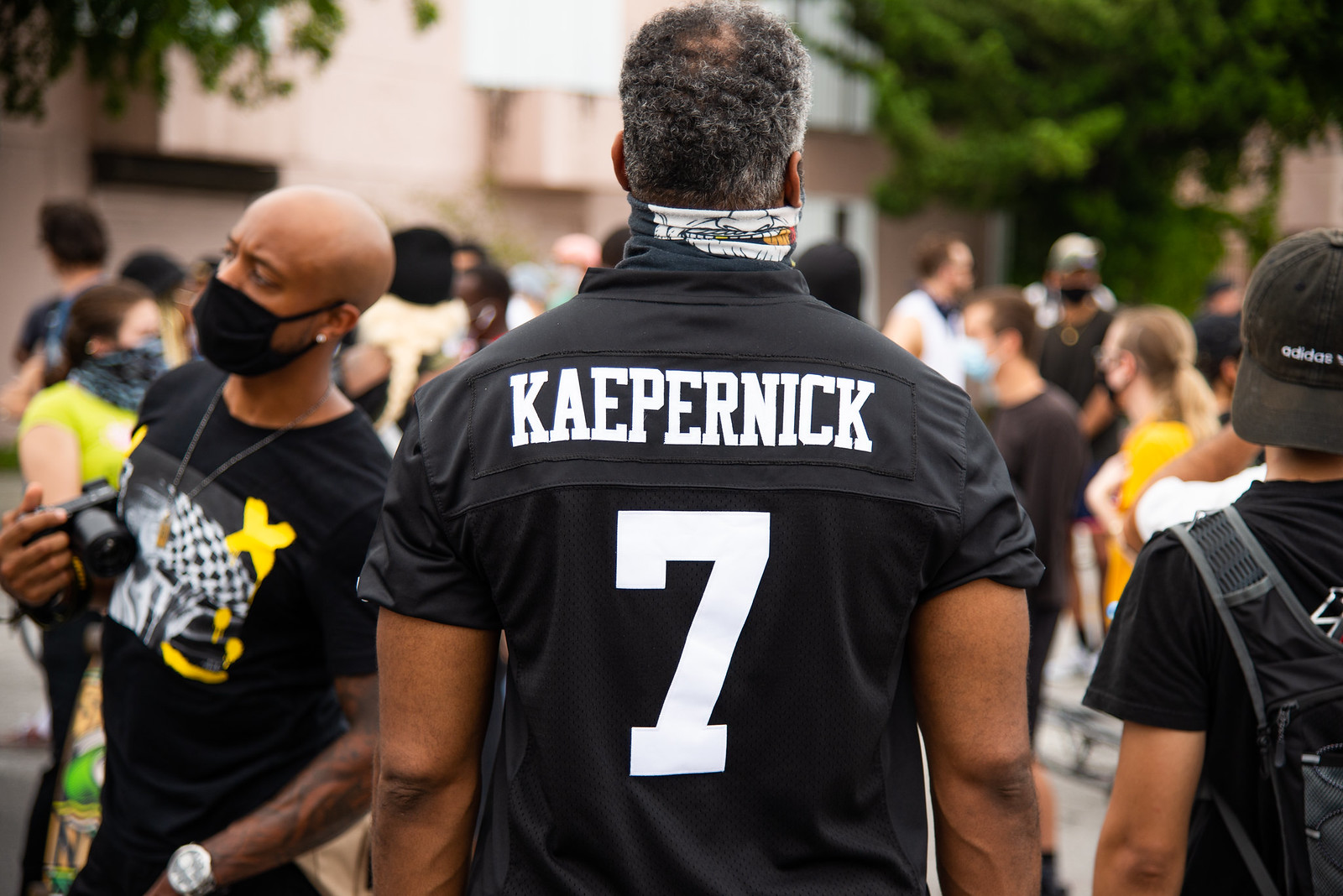What do Marcus Rashford, Colin Kaepernick and Billie Jean King all have in common? They’re obviously all sports stars, but the one thing that unites them is they’ve all shown moral leadership. Billie Jean’s campaigning led to equal pay for women in tennis. Colin Kaepernick’s national anthem protest against police brutality cost him his NFL career but started a movement. And Marcus Rashford’s recent campaign led to 1.3million school children being able to claim free school meal vouchers in the summer holidays.
All three are part of a long tradition of athlete activism that’s now very much on the rise. It wasn’t always the case, though. American sprinter Mack Robinson won a silver medal at the Berlin Olympics and the only job he could get when he returned home was as a street sweeper. He wore his Olympic jacket while working as a form of protest, but it didn’t go down well with residents who called the police to get him to take off his jacket. And in the 1990s, Michael Jordan’s oft quoted remark that “Republicans wear sneakers too” summed up the reasons why many athletes were not prepared to put their heads above the parapet.
That was then though and the days of sports stars hiding their social conscience are over. As Rashford recently noted, it’s becoming normal for his generation of sports stars to speak out. We’ve reached a social tipping point and it was hardly surprising that the Commonwealth Games Federation chief executive, David Grevenburg, recently announced that athletes will not be punished for activism at next year’s games in Birmingham.
What does this mean then for communications professionals and campaign strategists?
Well, the first thing to recognise is that around the world sports stars like LeBron James, Raheem Sterling and Coco Gauff wield enormous power and have a massive following. At 16-years old, Gauff, the breakout tennis star of last year shares similar sentiments to Rashford. “My generation has just decided it’s time to speak up,” she says.
Secondly, many sports stars are not only authentic voices but are part of an industry where meritocracy still thrives. Many come from tough backgrounds and have got to where they are today through talent, sacrifice and hard work. When they speak it comes from lived in experience and people listen.
Bill Clinton used to joke that every politician wants you to believe he was born in a log cabin he built himself. That self-made narrative works far better for sports stars these days.
Combine the size of their platform with the authenticity of their voice and ability to reach young people in a powerful manner and all the ingredients are there for sports stars to become serious changemakers.
For years, Labour MPs and shadow ministers have been campaigning about holiday hunger and urging the government to provide free meals during school holidays. All to no avail. Yet the fact Marcus Rashford forced government to deliver this in a matter of weeks speaks volumes about the strength of his voice.
There are of course many others with similarly powerful voices waiting to be heard and campaigners will no doubt be looking to harness them on multiple issues to have a similar effect. Patient lobbying and the long, hard graft of campaigning cannot compete with the power, reach and natural eloquence of today’s athlete activism.
As our politics continues to shrink and government shows no sign of clawing back lost trust, the old adage that sport is more than a game may never have been more appropriate.
Photo: Mike Shaheen


